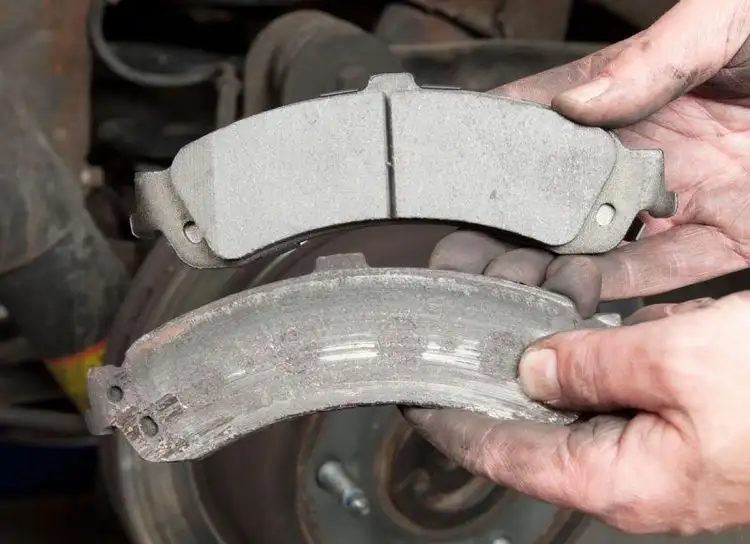If you’re a car owner, one of the most common maintenance tasks you’ll need to perform is changing your brake pads. Brake pads are a critical component of your vehicle’s braking system, and they wear down over time due to the friction created when you apply the brakes. Neglecting to replace worn-out brake pads can lead to serious safety issues and even accidents.
The time it takes to change brake pads can vary depending on several factors, including your mechanical skills, the type of vehicle you own, and whether you’re changing the front or rear brake pads. In this blog post, we’ll explore the factors that affect the time it takes to change brake pads and provide you with a general estimate.
Factors Affecting the Time to Change Brake Pads
- Mechanical Skills and Experience If you’re an experienced mechanic or have changed brake pads before, the process will likely take less time than if you’re doing it for the first time. Changing brake pads involves several steps, such as removing the wheels, caliper assembly, and old brake pads, and installing new ones. If you’re unfamiliar with the process, you may need to spend more time consulting repair manuals or online tutorials.
- Vehicle Type The time it takes to change brake pads can vary significantly depending on the type of vehicle you own. Some vehicles have more accessible brake systems, while others may require additional steps or special tools to access the brake components. For example, changing brake pads on a compact car with a straightforward brake system may take less time than changing them on a larger vehicle with a more complex brake setup.
- Front vs. Rear Brake Pads In most vehicles, the front brake pads tend to wear out faster than the rear brake pads due to the weight distribution and braking dynamics. Changing the front brake pads often requires removing additional components, such as the caliper assembly, which can add to the overall time required.
- Rust and Corrosion Over time, brake components can become corroded or seized, making it more difficult to remove and replace parts. If your vehicle has significant rust or corrosion issues in the brake area, it may take longer to disassemble and reassemble the components.
General Estimate for Changing Brake Pads
For most vehicles, the time it takes to change brake pads can range from 30 minutes to 2 hours or more, depending on the factors mentioned above. Here’s a general estimate:
- Experienced Mechanic: 30 minutes to 1 hour
- DIY Beginner: 1 to 2 hours (or more for the first time)
- Changing Front Brake Pads: 1 to 2 hours
- Changing Rear Brake Pads: 30 minutes to 1 hour
- Dealing with Rust or Corrosion: Additional time may be required
It’s important to note that these estimates are just guidelines, and the actual time required may vary based on your specific situation. If you’re unsure about your ability to change brake pads or encounter any difficulties during the process, it’s always best to seek professional assistance from a qualified mechanic to ensure the job is done correctly and safely.
How often should brake pads be replaced?
Most mechanics recommend replacing brake pads every 30,000 to 70,000 miles, depending on your driving habits and the quality of the brake pads. However, it’s a good idea to have your brake pads inspected during routine maintenance to determine if they need to be replaced sooner.
What tools do I need to change brake pads?
The basic tools needed to change brake pads include socket wrenches, a C-clamp or brake piston compression tool, a wire brush, brake grease, and new brake pads. You may also need a caliper piston rewind tool, depending on your vehicle.
How do I know when my brake pads need to be replaced?
Signs that your brake pads need to be replaced include:
- Squealing or grinding noises when braking
- Brake pedal vibration or pulsation
- Visible wear indicator on the brake pads
- Less than 1/4 inch of brake pad material remaining
Is it difficult to change brake pads?
Changing brake pads is a relatively straightforward task for those with some automotive repair experience. However, it can be challenging for beginners, as it requires properly retracting the caliper pistons, removing and replacing hardware, and ensuring proper bedding of the new pads.
How much does it cost to have brake pads changed?
The cost to have brake pads changed by a professional mechanic ranges from $150 to $300 per axle. This includes the cost of parts (pads and hardware) and labor. Doing it yourself can save a significant amount, with just the cost of parts often between $30 to $100 per axle.
Can I replace just the outer or inner brake pad?
It’s generally recommended to replace all brake pads (inner and outer) on the same axle at the same time. This ensures even wear and proper brake operation.
Do I need to replace the rotors when changing pads? Not always. If the brake rotors show excessive scoring, warping, or thickness variation beyond manufacturer specifications, they may need to be replaced or resurfaced along with the new pads.
Can I use brake lubricant on new brake pads?
Yes, using a brake lubricant (not regular grease) on the back of the brake pads and caliper slide pins is recommended to reduce noise and ensure proper brake operation.
Conclusion
Changing brake pads is an essential maintenance task that shouldn’t be neglected. While the time it takes can vary, it’s generally a straightforward process for those with some mechanical knowledge and experience. If you’re confident in your abilities, changing brake pads can save you money compared to taking your vehicle to a repair shop.
Read More:
- How Much Does Brake Caliper Replacement Cost in the USA?
- What’s the Real Cost of Resurfacing Your Brake Rotors?
- How Much Does It Cost to Fix a Brake Fluid Leak?
- When To Change Your Brake Fluid? How Much Does It Cost?
However, if you’re unsure or encounter any issues, it’s always better to seek professional help to ensure your safety on the road.



[…] How Long Does It Take to Change Brake Pads? […]
[…] How Long Does It Take to Change Brake Pads? […]